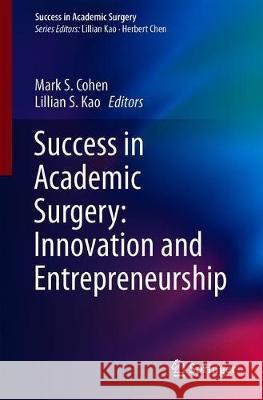Success in Academic Surgery: Innovation and Entrepreneurship » książka
topmenu
Success in Academic Surgery: Innovation and Entrepreneurship
ISBN-13: 9783030186128 / Angielski / Miękka / 2019 / 242 str.
Kategorie BISAC:
Wydawca:
Springer
Seria wydawnicza:
Język:
Angielski
ISBN-13:
9783030186128
Rok wydania:
2019
Wydanie:
2019
Ilość stron:
242
Waga:
0.53 kg
Wymiary:
23.5 x 15.5
Oprawa:
Miękka
Wolumenów:
01











